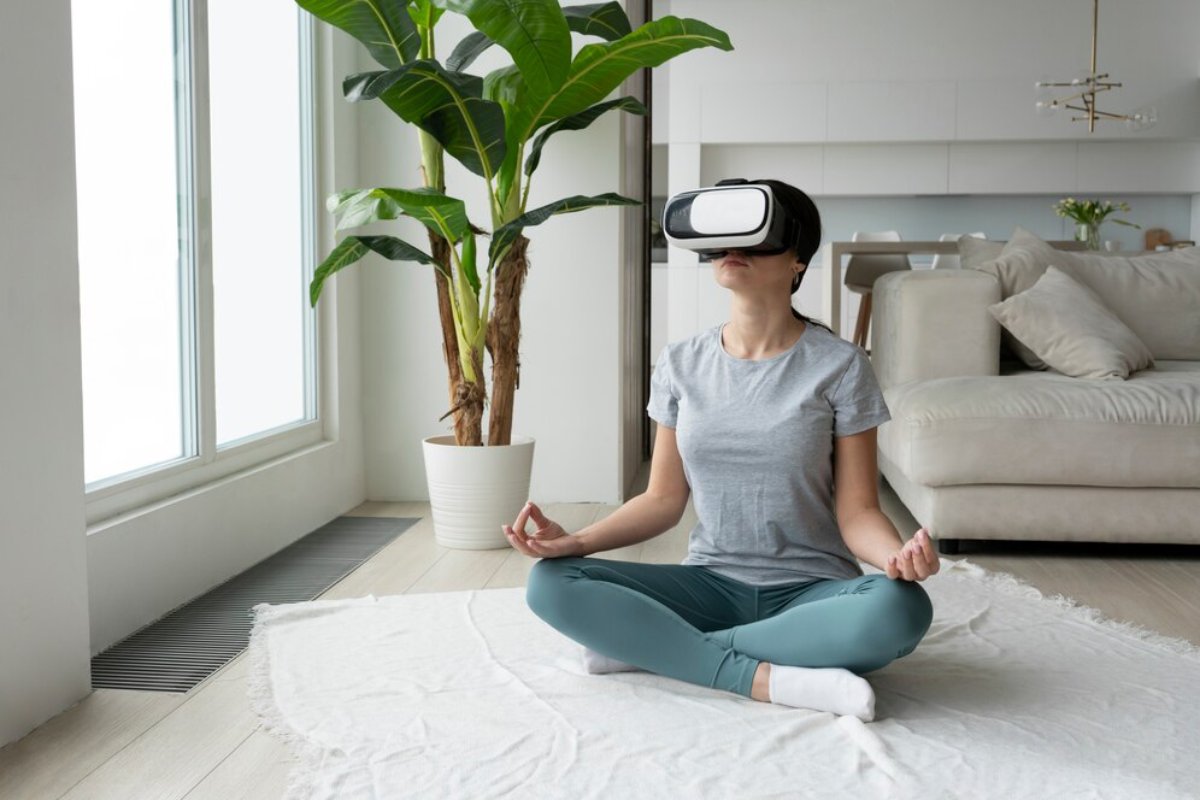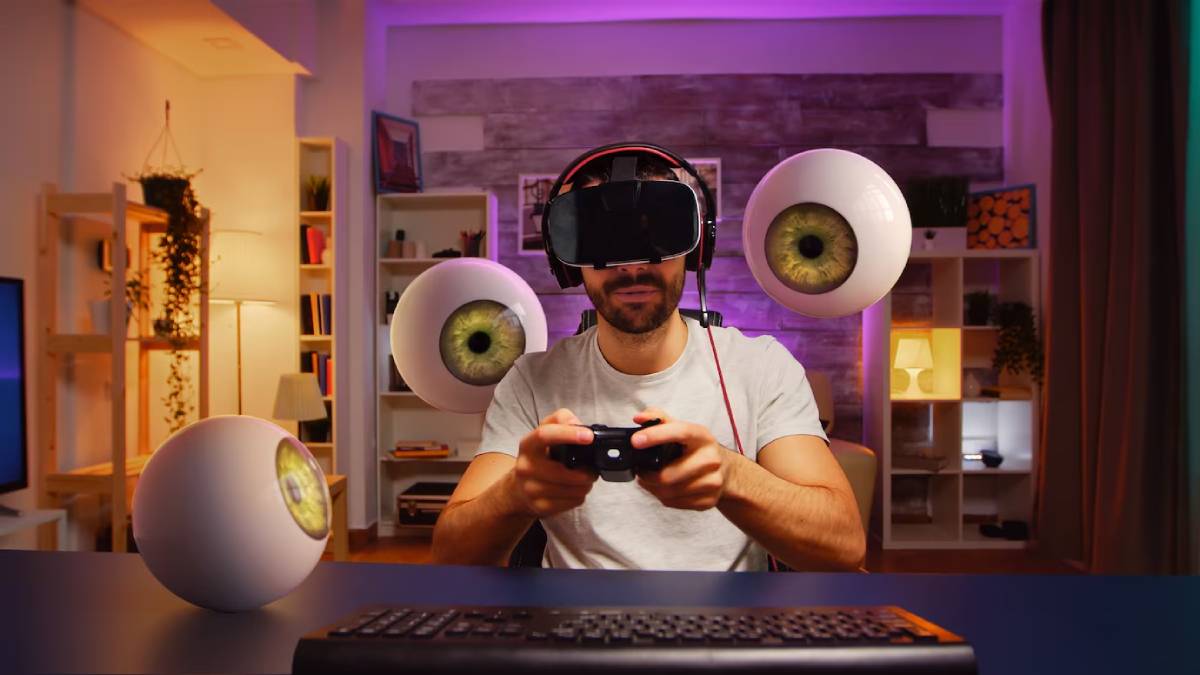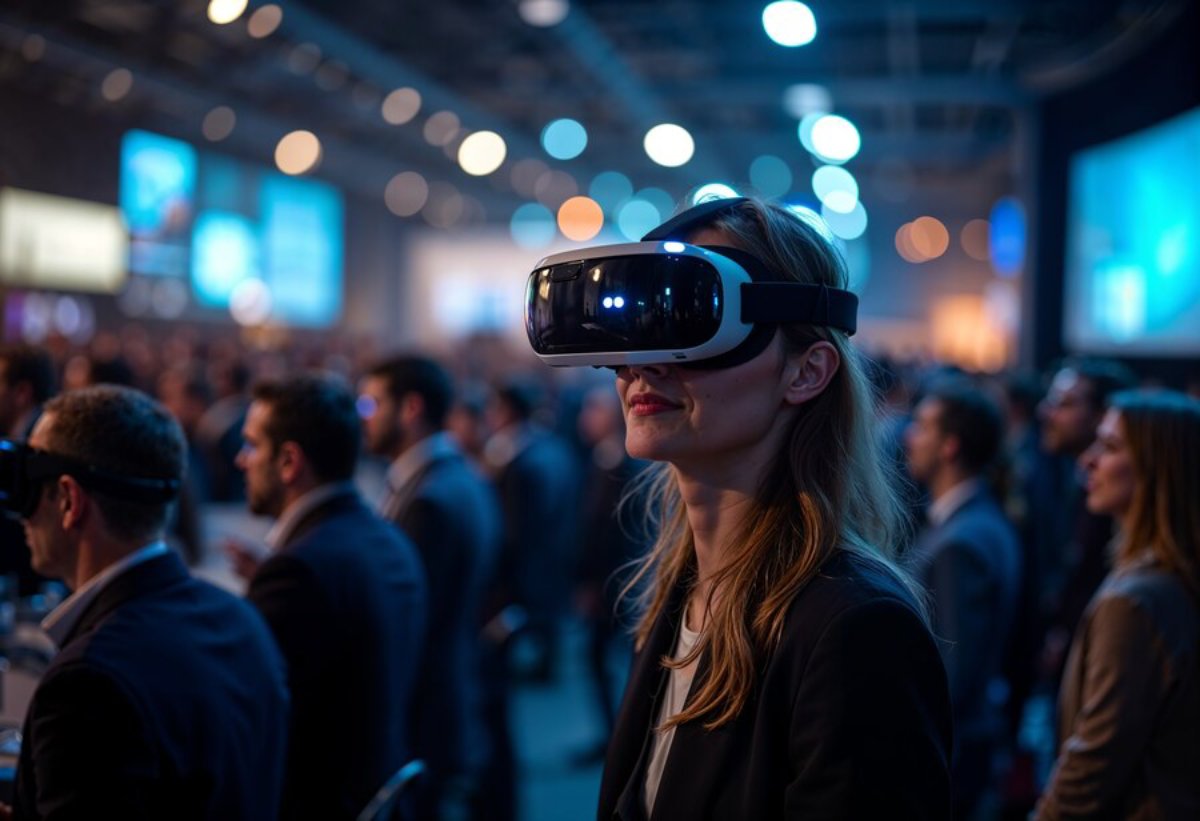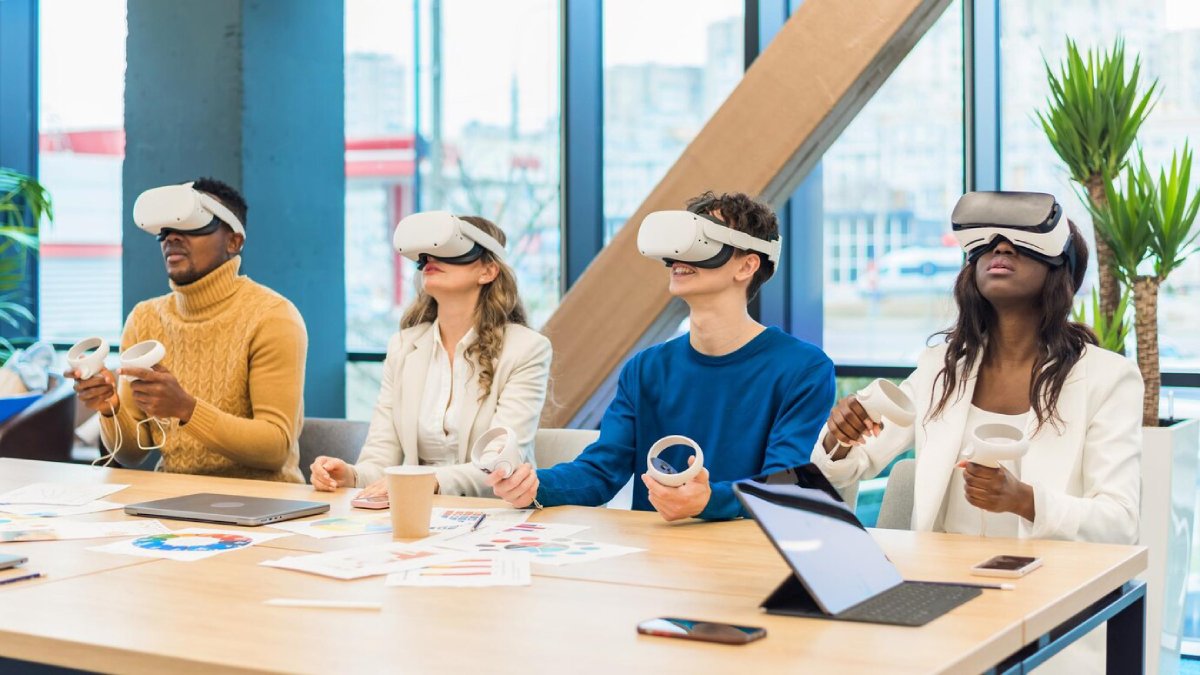
Mental Health Benefits of VR Meditation Apps
Recently, technology and health intersected to develop new solutions for age-old issues. Virtual Reality (VR) was a point of contention during this bubble, but the applications have finally started to mature. These VR meditation applications offer novel methods to unwind and rejuvenate the brain. They utilise VR’s immersive capacity to place users into serene environments, fostering mental well-being.
Mental health is essential for the quality of life. Traditional meditation has been viewed as a path to attaining clarity and reducing stress for years. VR meditation takes this to the next level by providing immersive environments that help users disconnect from the noise of life. Through this blog, we will explore the mental health benefits of VR meditation apps that help with relaxation and mental rejuvenation.
Key Benefits / Why It Matters
Enhancing Relaxation Through VR
VR meditation apps enhance relaxation through immersive experiences. Unlike traditional meditation, which requires users to visualise peaceful settings, VR offers rich visual and audio environments. This helps users reach a relaxed state, especially those who find it hard to meditate due to distractions.
Imagine meditating on a quiet beach, hearing waves and feeling the sun from your living room. This immersive experience can lower stress and create peace. Studies show that VR environments effectively reduce anxiety, making them valuable for mental health.
Additionally, users can customise VR visuals to their preferences. They can choose calming settings, from forests to mountaintops, making each session more effective.

Aiding Virtual Reality Mental Health Interventions
VR meditation apps also support mental health interventions. They provide a safe space that complements traditional therapy. For those dealing with anxiety, PTSD, or depression, VR meditation offers a non-invasive option tailored to individual needs.
Therapists can design structured VR sessions with specific goals. Users can engage in guided meditations to overcome fear, manage stress, or boost self-esteem. VR’s immersive quality keeps users focused, reducing distractions and deepening the therapeutic experience.
Moreover, VR can enhance cognitive behavioural therapy (CBT) by simulating scenarios for practising coping methods in a safe space. This approach helps users manage mental health conditions and equips them with practical tools for real-life situations.
Promoting Mindfulness and Presence
Mindfulness, the practice of being present, is vital for mental health. VR meditation apps excel at promoting mindfulness by removing distractions and creating focused environments. The immersive nature of VR engages all senses, making it easier to stay present during meditation.
This increased presence can improve mental clarity and emotional regulation. Regular mindfulness practice through VR meditation helps users become more aware of their thoughts and feelings, leading to better mental health.
Additionally, VR meditation apps help users establish regular mindfulness routines. Many apps track progress and send reminders, motivating users to stick with their practice. This habit can lead to long-term improvements in mental resilience and well-being.
Additional Expert Tips & Common Mistakes to Avoid
Best Practices for Using VR Meditation Apps
To get the most from VR meditation, here are some expert tips:
- Choose the Right App: Not all VR meditation apps are the same. Pick an app that fits your preferences and mental health goals. Look for high-quality graphics, soothing audio, and various meditation environments.
- Set a Regular Routine: Consistency is key in meditation. Create a regular schedule for VR meditation sessions to build a habit and enjoy long-term benefits.
- Create a Comfortable Environment: While VR transports you, start from a comfortable space. Make sure your area is distraction-free and you are seated comfortably.
- Combine with Traditional Practices: While VR meditation is powerful, mixing it with traditional mindfulness practices can enhance effectiveness. Consider adding breathing exercises or journaling to your routine.
- Use Guided Sessions: Beginners may find guided meditation sessions helpful. These provide step-by-step instructions, easing users into the practice.

Common Mistakes to Avoid
Be aware of these common pitfalls when using VR meditation apps:
- Over-reliance on Technology: VR meditation is a fantastic tool, but it shouldn’t replace traditional mental health practices or therapy. Use it as a complement, not a substitute.
- Ignoring Physical Limitations: VR can disorient some users, causing dizziness or discomfort. If you feel unwell, take breaks and consult a healthcare professional if needed.
- Neglecting Device Maintenance: Keep your VR device well-maintained and updated to avoid technical issues that might disrupt your meditation.
- Skipping Proper Setup: Failing to adjust the headset correctly or not using headphones can lessen the immersive experience. Spend time setting up your gear correctly.
- Inconsistent Practice: Sporadic use might not show noticeable results. Regular practice is essential for experiencing all the mental health benefits.
Advanced Insights / Expert Recommendations
The Future of VR Meditation in Mental Health
As VR technology improves, its applications for mental health are vast. Future developments may include personalised meditation experiences, where AI tailors sessions based on biometric feedback. This could lead to more effective interventions for mental health conditions.
As VR becomes more accessible, we can expect broader use in clinical settings. Mental health professionals might increasingly integrate VR meditation into treatment plans, offering patients innovative tools to support their mental health journey.
There is also potential for integration with wearables like heart rate monitors and EEG devices. These can provide real-time feedback during sessions, helping users track their progress and adjust techniques. This data-driven approach could transform self-care and therapeutic practices.
Unique Industry Perspectives
Mental health and technology experts are optimistic about VR’s role in promoting mental well-being. Dr. Jane Smith, a leading researcher, states that “VR meditation offers a unique chance to create a safe environment for mental health practice. Its multisensory engagement can greatly enhance therapeutic outcomes.”
Industry leaders are investing in developing VR meditation apps, recognising their potential to change mental health care. This interest will likely lead to more sophisticated options, giving users various tools to support their mental health.
Embracing the Future of Meditation
VR meditation apps are an exciting new frontier for mental health. Using the power of virtual reality, these applications offer immersive and effective methods for relaxing and recharging the mind. VR meditation is a valuable tool for mental well-being, whether you want to reduce stress, enhance mindfulness, enhance your physical fitness or complement the work done in traditional therapy.
When we see VR as a technique for psychological health, we should be open to the experience and willing to experiment. VR meditation can help improve mental health by incorporating its use into our routine and quality of life.
Explore VR meditation and discover its benefits. Whether you’re an experienced meditator or new to the practice, this innovative approach to mental health has something for everyone. So, take the plunge and experience the transformation.


